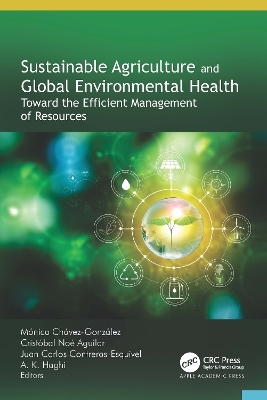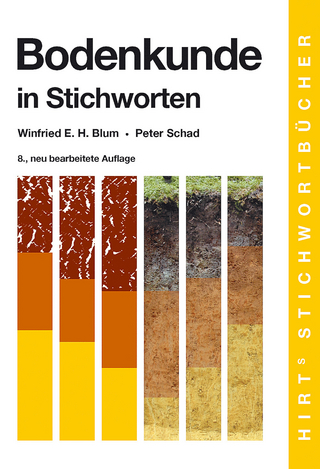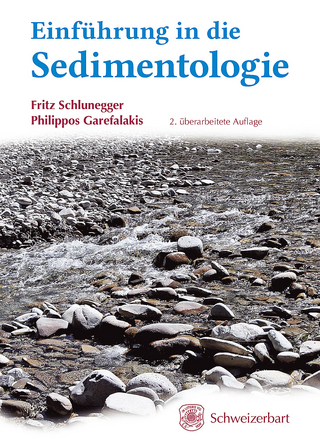
Sustainable Agriculture and Global Environmental Health
Apple Academic Press Inc. (Verlag)
978-1-77491-718-3 (ISBN)
- Lieferbar (Termin unbekannt)
- Versandkostenfrei innerhalb Deutschlands
- Auch auf Rechnung
- Verfügbarkeit in der Filiale vor Ort prüfen
- Artikel merken
New technologies have the potential to transform the agri-food industry by improving agricultural productivity. Recent innovations in this sector are making a useful contribution to environmental sustainability as well. This new book presents advanced methods and modern technologies in agri-food sectors to improve environmental health and food security on a global scale. It explores the principles of environmental sustainability and explains how these principles can be applied in practice in agri-food systems. It also provides an accessible framework for the effective management of resources for the reduction of chronic disease in humans and mitigating the degradation of the environment.
Key features:
Describes the key concepts of sustainable food production for scientists interested in the environmental impacts of agriculture
Reviews sustainable options to the industrial production methods used today to adopt healthier foods and lifestyles
Reports on sustainable resources for the food industry along with sustainable processes for food scientists of all levels, both in academia and industry
Explores technical innovations to connect the gap between a healthy environment and sustainable agriculture using the theories and principles set out in each chapter to address real-world problems
Presents case studies related to our growing demand for food from the perspectives of disciplines ranging from environmental science to public health
Mónica Chávez-González, PhD, is a Research Professor at the School of Chemical Sciences of the Universidad Autónoma de Coahuila, Mexico. She is a pharmacobiological chemist. She is the General Coordinator and founder of the Bioprocessing Mx-LATAM Network, which promotes R&D in the area of bioprocessing through interaction between universities, institutes, research centers, and relevant industries in Mexico and Latin America. She has been awarded the Latin American Women in Chemistry Award in the category of "Emerging Leader," granted by the American Chemical Society and the Latin American Federation of Chemical Associations (FLAQ). Cristóbal Noé Aguilar, PhD, is Director of Research and Postgraduate Programs at the Universidad Autonoma de Coahuila, Mexico. A prolific author and editor, he has published many books, papers in journals, and contributions in scientific meetings. He has been awarded several prizes and awards, the most important of which are the National Prize of Research (2010) from the Mexican Academy of Sciences; the Prize CCC–2008 from the Mexican Society of Biotechnology and Bioengineering; National Prize AgroBio-2005; and the Mexican Prize in Food Science and Technology. Juan Carlos Contreras-Esquivel, PhD, is a full Professor and Head of the Laboratory of Applied Glycobiotechnology at the Food Research Department, School of Chemistry, the University of Coahuila, Mexico. He is involved in teaching undergraduate and graduate students in food science and food bioscience. His research interests are mainly on applied glycoltechnology for polysaccharide extraction by using ecofriendly technologies (enzymatic, microwave, pulsed electric field, ultrasonic) and oligosaccharide production by degradative or biosynthetic routes. A. K. Haghi, PhD, is a retired professor and has written, co-written, edited or co-edited more than 1000 research publications, including books, book chapters, and papers in refereed journals, with over 3800 citations and h-index of 32, according to the Google Scholar database. He is currently a reseasrch associate at the University of Coimbra, Portugal. Professor Haghi has received several grants, consulted for several major corporations, and is a frequent speaker to national and international audiences. He is Founder and former editor-in-chief of the Interational Journal of Chemioinformatics and Chemical Engineering and Polymers Research Journal. Professor Haghi has acted as an editorial board member of many international journals. He has served as a member of the Canadian Research and Development Center of Sciences & Cultures.
1. An Introduction to the Environmental Sustainability of Biofuels 2. Advanced Oxidation Processes in the Treatment of Effluents Contaminated with Dyes 3. Built Environment Impact on Health, Water, Air, and Sustainable Urban Agriculture: A Case Study of Alameda Zaragoza in Saltillo, Mexico 4. Sustainable Nanoscale Polymer-Based Edible Coatings 5. Removal of Dyes from Water: Techniques and Materials 6. Spent Coffee Grounds as a Source of Bioactive Compounds with Food and Agricultural Applications: A Review 7. Sustainable Use of Semi-Desert Plants 8. Streptomyces sp. as a Producer of Bioactive Compounds for the Generation of Organic Herbicides 9. Biological Control as an Environmentally Sustainable Strategy for Application in Postharvest Fruit Packaging 10. Biodiesel Production from Residual Fats and Oils by Enzymatic Catalysis: An Environmentally Friendly Alternative 11. Plant Extracts as Elicitors in Plants Against Diseases: Action Mode and Perspectives 12. Malanga and Its Sustainable Production 13. Valorization of Agro-Industrial Wastes for Ultrasound-Assisted Extraction of Pectin: A Review
| Erscheinungsdatum | 03.10.2024 |
|---|---|
| Zusatzinfo | 34 Illustrations, black and white |
| Verlagsort | Oakville |
| Sprache | englisch |
| Maße | 156 x 234 mm |
| Gewicht | 810 g |
| Themenwelt | Naturwissenschaften ► Geowissenschaften ► Geologie |
| Technik ► Bauwesen | |
| Weitere Fachgebiete ► Land- / Forstwirtschaft / Fischerei | |
| ISBN-10 | 1-77491-718-1 / 1774917181 |
| ISBN-13 | 978-1-77491-718-3 / 9781774917183 |
| Zustand | Neuware |
| Haben Sie eine Frage zum Produkt? |
aus dem Bereich


